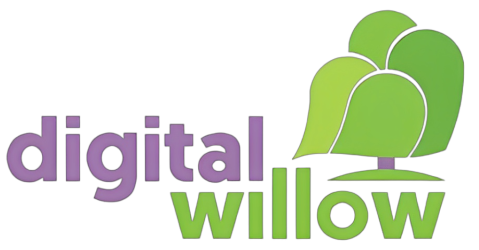When it comes to digital marketing, getting your brand to the most prominent positions on a search engine is a bit of a no-brainer. Most organisations would benefit from top-of-page positions on Google search engine results. Yet during an era of deprecation of third-party cookies, changing analytics and attribution methods (such as GA4) and increased media costs; the paid search market has arguably never been more challenging.
What is the difference between paid search marketing and PPC?
Paid search marketing refers to the paid advertisements that appear on search engine results pages (SERP) e.g. Google, Yahoo!, Baidu, Yandex and Bing (Microsoft). You will sometimes see this shortened to PPC marketing or PPC ad campaigns. However, in truth, this phrase covers a wider range of paid advertising (even social). PPC stands for Pay Per Click advertising.
PPC ads became very popular as they changed the way we buy media and there are now many PPC companies. Rather than paying for an impression, for a page in a magazine, or even a TV spot – PPC buying reduces waste by ensuring that marketers only pay when a user actually interacts (i.e. clicks) on your ad.
How are paid search campaigns managed?
Mastering the art of paid marketing isn’t easy. With AI tools on the rise, there is a balance to find between utilising automation and human intervention. There are hundreds of combinations of different levers that can and should be adjusted and tweaked to improve campaign performance. Be warned, sometimes search engines will recommend platform changes that aren’t necessarily going to drive better performance, but will most certainly encourage further spending. If the balance of automation and professional strategic support is not managed correctly, you can quickly waste a lot of money.
Account structure
The structure of your search marketing account can make a huge difference to your marketing performance and quality score. It is not uncommon for us to see accounts that need a complete overhaul as structures do not reflect the layout of the client’s website or aren’t built in the best way possible to achieve ROI. An optimal paid search strategy will require speaking with a professional, otherwise, you can easily waste money quickly and Google will be only too happy to take your money in the process.
Keyword Research
Keyword research is a key part of planning paid campaigns as they ensure your brand is appearing when your core target audience is actively searching. This also involves creating lists of negative keywords. Once we’ve discovered what keywords your customers are searching for, the Digital Willow team can programme the search engines to respond to their search and have your ad appear when and where it’ll have the greatest impact, driving up your conversion rate. Keyword strategy evolves over time as factors like competition and seasonality will have a significant impact on performance.
The Art of Bidding Strategies
Mastering bidding strategies is something that requires experience and a fair amount of testing. When setting up a paid search campaign, there are several different bidding strategies that can be used, such as maximise conversions, target CPA, and target ROAS. If you are optimising for the lowest CPC then chances are you need some professional help.
Types of PPC?
There are many types of pay-per-click ads; search ads, display ads, video ads, shopping ads, performance max ads, social media ads and discovery ads.
Search ads: paid search ads are advertisements that appear in the search engine results when a user searches for relevant keywords or phrases.
Display ads: these can be static, animated graphics or even video and whilst can be bought on CPM, they can also be bought on a CPC pending on the advertising platform.
Video ads: using a variety of available video ad formats across various platforms can help captivate your audience. YouTube is a great example of how videos can be used to prompt consumer interest. On YouTube, you typically buy on a Pay per View.
Shopping ads: shopping ads (sometimes called product listing ads (PLAs)) show items for sale at the top of the SERP. This includes an image, title, price and link to the seller’s online store.
Performance Max ads: this consolidates all your ads across various Google ads to improve the efficiency of your ad campaign. This is an interesting strategy to try for the right objective; whilst it can perform well, it can be equally frustrating as Google tends to hide important data from the buyer making the algorithm and ad platform difficult to optimise.
Social Media ads: advertisers can deliver personalised content to highly targeted audiences by utilising various data sources, such as demographics and user behaviour. Many social ads can be bought on a Pay Per Click model.
Why Digital Willow for your PPC?
At Digital Willow, we understand the complexities of search engine marketing and how it works not only in isolation but with all your other communication channels. We have been certified Google Partners for over 11 years and can confidently transform your PPC accounts into high-performing marketing campaigns, driving new leads and generating new business and revenue. Don’t have a PPC account? No problem – we can create one for you from scratch.
Just some of the paid search advertising platforms we work with are; Google Ads, Microsoft Advertising (Bing), Ecosia, Baidu, Yandex and Amazon.
If you want to get to the top of your search engine results page and want a team of PPC professionals that will truly scrutinise your advertising data and campaigns, please get in touch.
